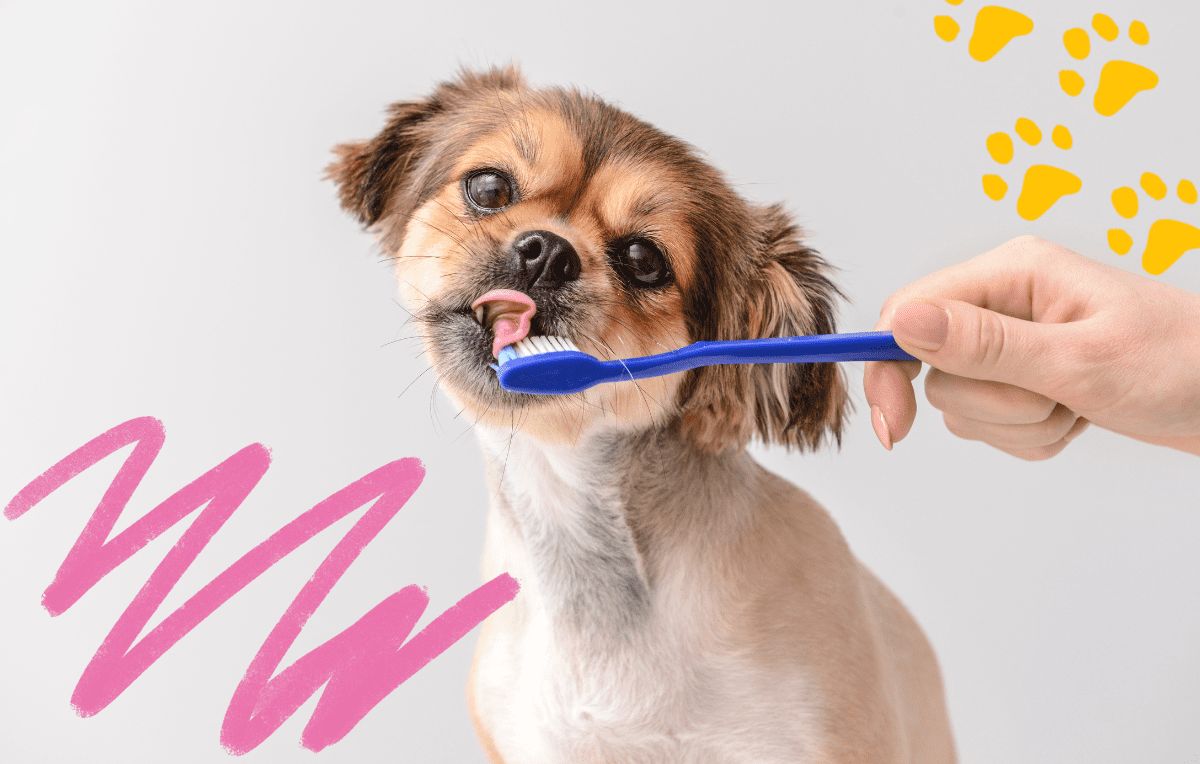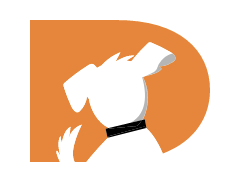3 min read
10 Questions to Ask Your Vet About Your Dog’s Dental Health
 Caitlyn Mellor
:
Mar 2, 2023 6:26:14 PM
Caitlyn Mellor
:
Mar 2, 2023 6:26:14 PM

Since February is Pet Dental Health Month, you’ve probably seen a lot of information about how to keep your dog’s teeth clean.
But let’s chew on a different approach.
Think about how you can work with your veterinarian to develop a dental health plan that works for you and your unique dog. By knowing what to ask, you’ll be able to fetch the best advice!
Here are some important questions to ask your veterinarian about your pup’s pearly whites.
First, let’s schedule the dental appointment.
Whether it’s at your annual wellness visit or a dedicated appointment to focus specifically on your dog’s dental health, get that appointment on the calendar and develop your game plan.
To make the most of your visit, jot down some questions ahead of time. You know how you always go into the vet’s office and then leave thinking, “Aw, dang. I forgot to ask about this.”
Well, not this time!
With your notes at the ready, you’ll be fully prepared to discuss your pet’s dental health with your veterinarian.
What questions should you ask about your dog’s dental health, and why?
Asking all the right questions can make all the difference in keeping those fang-tastic chompers in top shape. It’ll allow you to fully understand your pet’s dental health and any potential issues they may face.
Current dental status questions
-
Where does my dog’s dental health stand now?
It’s important to have a baseline understanding to help you determine the best course of action for your pet’s dental health. So ask for information about your dog’s teeth, gums, and mouth, as well as any dental problems that may require treatment.
-
Should we take X-rays of my dog’s teeth? If so, how often? Can you do them here?
For some dogs, regular X-rays can paint a broader picture of their dental health status, so veterinarians will want to do them more often and include them in a regular regimen. For others, a physical exam might suffice for some time. If they are needed, you’ll know if you can have them done in the office or need to go off-site.
-
Does my dog need a dental cleaning? How soon?
Aside from regular teeth brushing, dental cleanings are necessary to prevent periodontal disease and other dental issues. The frequency can vary depending on your pet’s age, breed, and overall health. Your vet can help you get a better idea of when a dental cleaning may be necessary and plan accordingly.
Dental procedure questions
-
What does your dental cleaning procedure entail?
Ask your veterinarian for a walk-through, including how long it will take and what to expect during the procedure. Understanding the process, which may include scaling, polishing, and extractions can give you peace of mind that your dog will receive safe and effective dental care.
-
What is the dental pre-op procedure?
Know the steps you need to take before the dental cleaning procedure, such as fasting requirements, preoperative blood work, and any medication protocols. If necessary, you may also ask about anesthesia or sedation.
-
What are the risks and benefits of dental anesthesia for my dog?
Anesthesia carries some potential risks, especially for certain breeds or pets with pre-existing health conditions. Make sure your vet recommends anesthesia procedures that are appropriate for your dog’s health, and inquire about any alternative options that might be available.
Dental health maintenance questions
-
What do I need to do consistently to maintain or improve my dog’s dental health?
To establish an ongoing dental routine, your veterinarian can provide you with tips on how to care for your dog’s teeth at home, such as brushing teeth the right way and dietary changes.
-
What dental health products do you recommend?
It can be overwhelming to choose the right products for your dog, so ask about the ones that are best suited for your pet’s individual needs, including dental chews and other products that can help prevent plaque buildup.
-
Can you show me exactly how to brush my dog’s teeth?
Request a demo to ensure that you are doing it correctly and effectively. Don’t forget to ask about the best techniques, tools, and toothpaste to use, as well as tips on how to make the experience as stress-free as possible for both you and your pet.
-
What signs of dental issues should I look for in my dog?
It’s important to know the symptoms, so you can catch any problems early and prevent further complications. The list may include bad breath, loose teeth, and bleeding gums. But you may also learn if there are signs that are specific to your pet’s breed or health condition.
Now you’re ready for your next dental appointment! With these pawsome questions in your back pocket, you’ll walk away with a customized dental health plan for your pet. And your dog’s mouth will thank you (with slobbery yet charming kisses).
